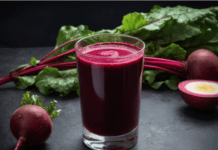Did you know that the Romans prized arugula not only for its flavor but also for its supposed aphrodisiac qualities? This peppery, leafy green vegetable, scientifically known as Eruca sativa, has transcended culinary traditions to become a modern-day superfood. Arugula boasts a remarkable nutrient profile, making it a powerful ally for overall health.
Health Benefits of Arugula
Arugula, also known as rocket salad, is a leafy green that offers a variety of health benefits. It’s packed with essential nutrients and antioxidants that can contribute to overall well-being.
Antioxidant Properties
- Cancer-fighting agents: Arugula contains antioxidants like carotenoids and flavonoids, which have been linked to a reduced risk of certain types of cancer.
- Protection from cell damage: Antioxidants aid in preventing damage to cells from free radicals, which can exacerbate chronic diseases.
Essential Nutrients
- Vitamin A: Essential for eye health, immune function, and cell growth.
- Vitamin C: An antioxidant that boosts immunity, aids in iron absorption, and promotes tissue health.
- Folate: Crucial for DNA production, cell growth, and development, especially important for pregnant women.
- Potassium: Helps regulate heart function, blood pressure, and kidney function.
Other Benefits
- Heart health: The potassium in arugula can help regulate blood pressure, reducing the risk of heart disease.
- Immune system support: The antioxidants and vitamins in arugula help strengthen the immune system, making it better equipped to fight off infections.
- Digestive health: Arugula contains fiber, which can promote healthy digestion and prevent constipation.
Arugula in Culinary Traditions
Arugula has a rich history in Mediterranean, Roman, and Middle Eastern cuisines. It has been used for centuries not only for its culinary versatility but also for its medicinal properties.
Cooking with Arugula
A Versatile Ingredient for Your Kitchen
Arugula’s peppery, tangy flavor adds a delightful kick to a variety of dishes. Here are some culinary ideas to incorporate arugula into your meals:
Salads
- Classic Arugula Salad: Toss arugula with cherry tomatoes, shaved Parmesan cheese, and a lemon-olive oil dressing.
- Citrus-Flavored Salads: Pair arugula with citrus fruits and berries for a refreshing and flavorful salad.
- Hearty Salad Recipes: Add arugula to substantial salads with grains, beans, and proteins like grilled chicken or salmon.
Garnishes
- Pizza Topping: Sprinkle arugula on top of your favorite pizza for a fresh and flavorful finishing touch.
- Nacho Topper: Add a layer of arugula to your nachos for a healthy and nutritious upgrade.
- Sandwich Garnish: Place arugula leaves on top of sandwiches or wraps for a burst of flavor.
Other Culinary Applications
- Pestos: Make a delicious arugula pesto by blending arugula, Parmesan cheese, garlic, olive oil, and pine nuts.
- Grilled Dishes: Toss arugula with a citrus-flavored dressing and serve as a side dish to grilled chicken, fish, or vegetables.
- Wraps: Add arugula to your favorite wraps for a healthy and flavorful filling.
Additional tips:
- Balance the flavors: Arugula’s peppery taste can be overpowering, so balance it with milder ingredients like creamy cheeses or sweet fruits.
- Experiment with textures: Combine arugula with different textures, such as crunchy nuts, creamy avocados, or tender grilled vegetables.
- Preserve freshness: Store arugula in a sealed container in the refrigerator to maintain its freshness.
Meal Preparation Ideas with Arugula
Arugula’s peppery, tangy flavor adds a delightful kick to a variety of dishes. Here are some ideas to incorporate arugula into your meal preparation routine:
Salads
- Classic Arugula Salad: Toss arugula with cherry tomatoes, shaved Parmesan cheese, and a lemon-olive oil dressing.
- Citrus-Flavored Salads: Pair arugula with citrus fruits and berries for a refreshing and flavorful salad.
- Hearty Salad Recipes: Add arugula to substantial salads with grains, beans, and proteins like grilled chicken or salmon.
Other Culinary Applications
- Pestos: Make a delicious arugula pesto by blending arugula, Parmesan cheese, garlic, olive oil, and pine nuts.
- Grilled Dishes: Toss arugula with a citrus-flavored dressing and serve as a side dish to grilled chicken, fish, or vegetables.
- Wraps: Add arugula to your favorite wraps for a healthy and flavorful filling.
Arugula-Based Recipes
- Chef John’s Almond Arugula Pesto: This recipe combines arugula with almonds, Parmesan cheese, extra virgin olive oil, and lemon juice for a creamy and flavorful pesto.
- Roasted Pecan and Arugula Salad: Toss arugula with roasted pecans, goat cheese, and a vinaigrette made with balsamic vinegar and honey.
Tips for Meal Prep:
- Prepare ahead: Wash and dry arugula in advance to save time during meal preparation.
- Make a batch of dressing: Prepare a large batch of your favorite dressing to use throughout the week.
- Create a variety: Experiment with different combinations of ingredients to keep your meals interesting.
A Nutritional Powerhouse Compared to Other Greens
Arugula, also known as rocket salad, is a leafy green with a peppery, slightly bitter taste. It’s gaining popularity due to its unique flavor profile and nutritional benefits. Let’s compare arugula to other greens to see how it stacks up.
Taste Comparison
- Arugula: Peppery, slightly bitter with a tangy flavor.
- Spinach: Mild, earthy taste.
- Kale: Slightly bitter, with a tough texture.
- Lettuce: Crisp, mild flavor, varying depending on the type.
Nutritional Comparison
Arugula is packed with nutrients, including:
- Vitamins: Vitamins A, C, K, and folate.
- Minerals: Calcium, iron, potassium, and manganese.
- Antioxidants: Carotenoids and flavonoids.
Compared to other greens, arugula often has:
- Higher levels of vitamin K: Essential for blood clotting and bone health.
- Similar levels of vitamin C: An antioxidant that boosts immunity.
- Lower levels of calories: Making it a great choice for weight management.
Arugula, also known as rocket salad, is a leafy green that offers a variety of health benefits due to its impressive nutritional content. Here’s a breakdown of the key nutrients found in arugula:
Vitamins
- Vitamin K: Essential for blood clotting and bone health.
- Vitamin C: An antioxidant that boosts immunity and aids in iron absorption.
- Folate: Crucial for DNA production, cell growth, and development, especially important for pregnant women.
- Vitamin A: Essential for eye health, immune function, and cell growth.
Minerals
- Potassium: Helps regulate heart function, blood pressure, and kidney function.
- Calcium: Essential for bone health and muscle function.
- Iron: Necessary for oxygen transport in the body.
- Manganese: Involved in various metabolic processes.
Other Nutrients
- Fiber: Promotes digestive health and helps regulate blood sugar levels.
- Phytochemicals: Plant-based compounds that may have health benefits, including antioxidant and anti-inflammatory properties.
- Lutein and zeaxanthin: Carotenoids that are beneficial for eye health, especially for protecting against age-related macular degeneration.
Nutritional Profile
Arugula is a nutrient-dense food that provides a high amount of nutrients for relatively few calories. It’s low in calories, carbohydrates, fat, and sugar, making it a healthy choice for those watching their weight.
Growing Arugula
Arugula, or rocket salad, is a fast-growing leafy green that’s easy to cultivate in home gardens. Here’s a guide to growing your arugula:
Ideal Conditions
- Climate: Arugula thrives in cool weather with plenty of sunlight. It’s well-suited for spring and fall planting in most regions.
- Soil: Arugula prefers fertile, well-draining soil with a neutral pH.
- Sunlight: Arugula needs at least 6-8 hours of direct sunlight per day.
Planting Tips
- Planting time: Sow seeds directly into the soil 2-3 weeks before the last expected frost.
- Spacing: Plant seeds about 1/4 inch deep and 6-8 inches apart.
- Thinning: Once seedlings are a few inches tall, thin them out to leave the strongest plants about 12 inches apart.
Maintenance
- Watering: Keep the soil consistently moist but not soggy. Arugula doesn’t tolerate drought.
- Fertilizing: Arugula is a light feeder. Fertilize once or twice during the growing season with a balanced fertilizer.
- Pest and disease control: Arugula can be susceptible to aphids and flea beetles. Monitor your plants regularly and take action if you notice pests.
Harvesting
- Harvesting time: Arugula typically reaches full maturity in 35-50 days.
- Cutting the entire plant at the base or hand-picking individual leaves are both acceptable methods of harvesting arugula.
- Regrowing: Arugula can be regrown from the base after harvesting. Simply cut the plant back to about 2 inches and continue to care for it as usual.
Note: In regions like California and Arizona, arugula is often grown commercially and harvested mechanically using mowers or cutters. However, for home gardens, hand-picking is the preferred method.
FAQ
Nutritional Benefits
Q: What are the main nutritional benefits of arugula? A: Arugula is packed with vitamins and minerals, including vitamins A, C, K, and folate, as well as calcium, iron, potassium, and manganese. It’s also a good source of antioxidants.
Q: How does arugula compare to other leafy greens in terms of nutrition? A: While arugula shares many nutritional benefits with other leafy greens, it often has higher levels of vitamin K, which is essential for blood clotting and bone health.
Culinary Uses
Q: What are some popular ways to use arugula in cooking? A: Arugula can be used in a variety of dishes, including salads, sandwiches, pesto, pizzas, and pasta. It pairs well with strong flavors like garlic, lemon, and Parmesan cheese.
Q: How can I prevent arugula from becoming bitter? A: To prevent arugula from becoming bitter, avoid overcooking it. It’s best enjoyed fresh or lightly cooked.
Health and Wellness
Q: Can arugula help with bone health? A: Yes, arugula is a good source of calcium, which is essential for bone health. It also contains vitamin K, which helps regulate calcium absorption.
Q: Is arugula suitable for people with dietary restrictions? A: Arugula is generally suitable for people with most dietary restrictions, including vegetarians and vegans. However, it’s important to check the labels of any prepared products containing arugula, as they may contain allergens or other ingredients that are not suitable for everyone.
Q: Are there any potential side effects of consuming arugula? A: While arugula is generally safe to consume, some people may experience allergic reactions. If you have a history of allergies, it’s best to consult with a healthcare professional before consuming arugula.
Conclusion
Arugula is a powerhouse of nutrition and flavor, offering numerous health benefits from heart health to cancer prevention. Its versatility in the kitchen makes it easy to incorporate into various dishes. Embrace the health benefits and culinary potential of this superfood by making arugula a regular part of your diet.
Authoritative Sources:
- Heart Health: A source about the antioxidants in arugula and their link to heart health. Here are a couple of options:
- Nitrate content and blood pressure: A source on the nitrates in arugula and their impact on blood pressure. You can consider:
- Anti-inflammatory properties: A source discussing the anti-inflammatory effects of arugula’s phytonutrients. Here’s an option:
- Lutein and zeaxanthin for eye health: A source on how lutein and zeaxanthin in arugula benefit the eyes. You can try:
- Antioxidants and Skin Health: A source on the link between arugula’s antioxidants and skin health. Here’s an option:
- Vitamin K and Bone Health: A source on Vitamin K in arugula and its role in bone health. You can consider:
- Erucin and Bone Health: A source specifically mentioning erucin’s link to bone health. Here’s an option (though some research is ongoing):
- Fiber and Weight Loss: A source on how arugula’s fiber content aids weight management. You can try:
- Fiber and Blood Sugar Regulation: A source on the link between arugula’s fiber and blood sugar control. Here’s an option:








